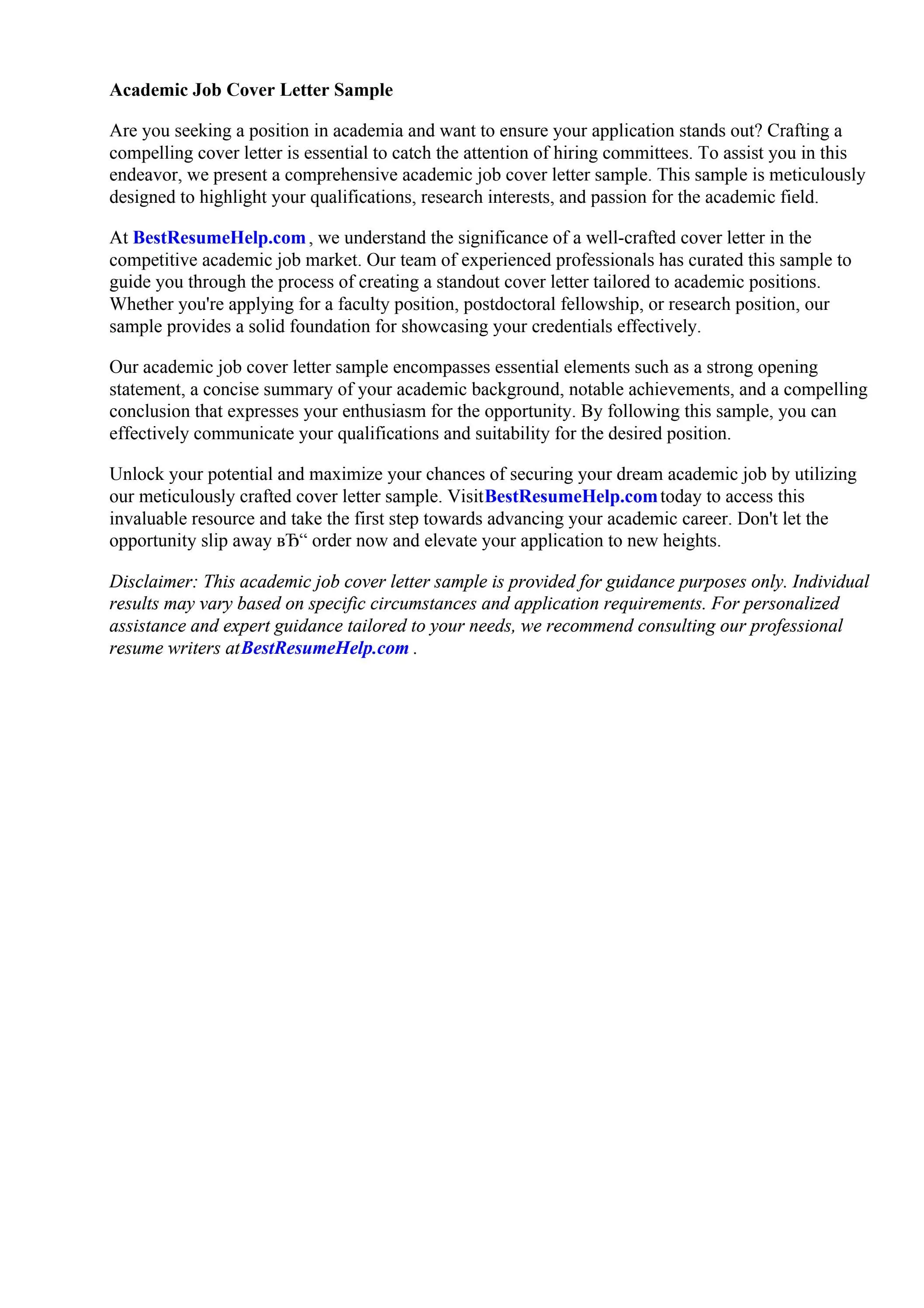Understanding the Academic Job Cover Letter
The academic job market is unique, and so are the expectations for a cover letter. Unlike cover letters for industry positions, academic cover letters serve as a comprehensive introduction to your qualifications, research, and teaching experience. They are not just summaries of your resume; they are persuasive narratives that showcase your fit for the specific position and the institution. Crafting a compelling cover letter can significantly increase your chances of landing an interview and ultimately, the job. It’s your opportunity to demonstrate not just what you’ve done, but also what you can bring to the academic community and how you align with the institution’s mission and values. A well-written cover letter demonstrates your understanding of the role and the ability to communicate effectively. This is a crucial step in a successful job application, and requires careful planning and execution.
Key Differences from Other Cover Letters
Compared to cover letters for non-academic roles, academic cover letters demand a higher level of detail regarding your research, teaching philosophy, and service contributions. They often require a longer length, providing space to elaborate on your accomplishments and how they relate to the job requirements. The language used should be professional yet engaging, reflecting your expertise and passion for your field. It’s important to use discipline-specific language. The focus is equally on your past achievements and your future potential, including your vision for research, teaching, and collaboration within the institution. Moreover, academic cover letters must often explicitly address how your skills and experiences align with the department’s needs and the institution’s overall goals. This requires a careful reading of the job description and a tailored approach to demonstrate fit.
Importance of Tailoring
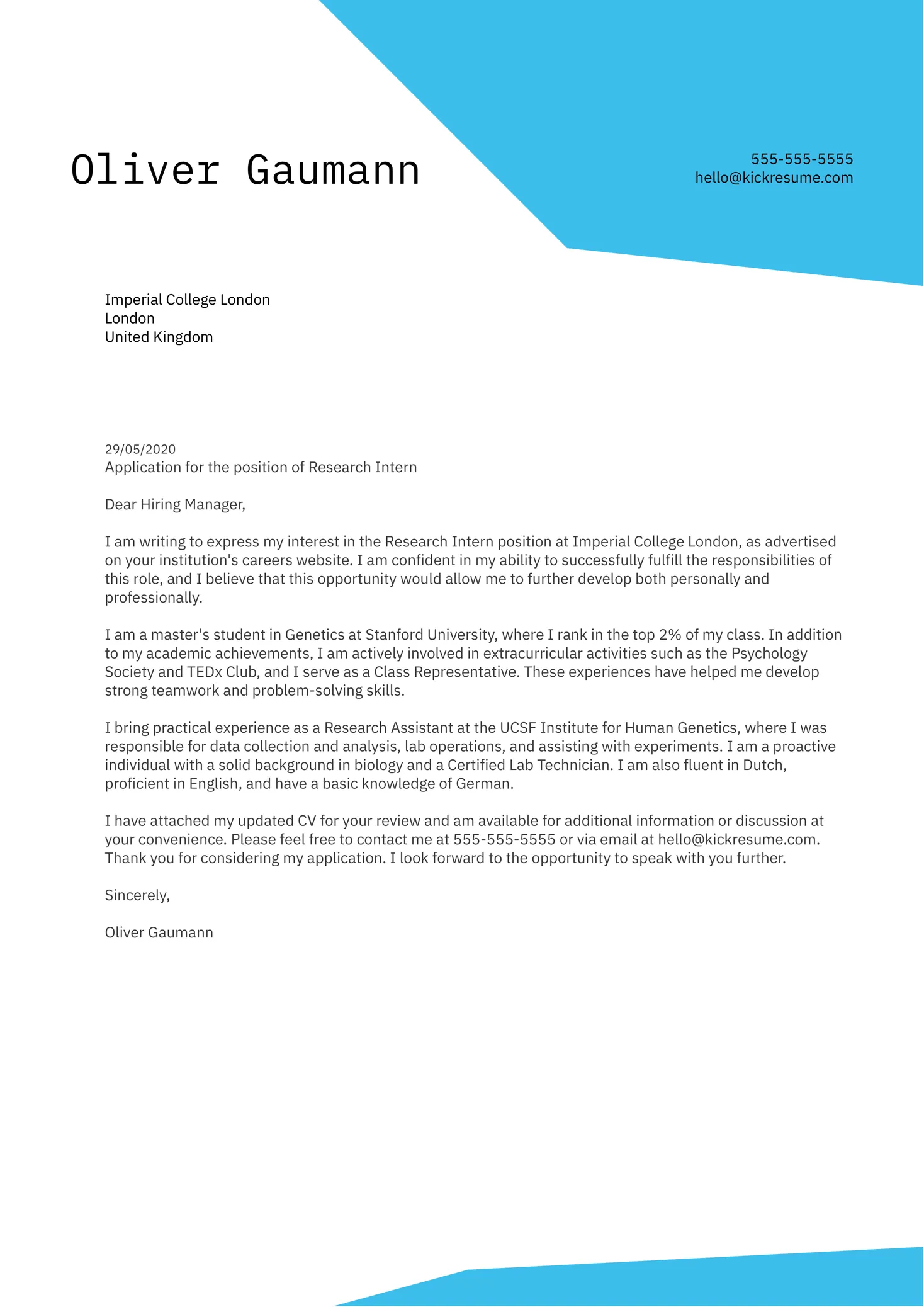
Generic cover letters rarely make a strong impression in academia. Tailoring your cover letter to each specific job is crucial. This involves researching the institution, understanding the department’s priorities, and identifying the specific requirements outlined in the job description. Customize each letter to emphasize the skills, experiences, and research interests that align with the advertised position. This includes directly addressing how your research aligns with the department’s research areas, how your teaching philosophy complements their pedagogy, and how your service experience could benefit the institution. By demonstrating that you understand the role and have taken the time to customize your application, you show a genuine interest in the position and increase your chances of being noticed. Use keywords from the job description throughout your letter, showcasing a deliberate focus on the needs of the hiring committee. (Image: tailoring-cover-letter.webp)
Essential Sections for Your Cover Letter
Contact Information and Salutation
Start with your contact information, including your name, address, phone number, and professional email address. Then, address the letter to the search committee chair or the specific person mentioned in the job posting. Researching the correct name shows attention to detail. Use a formal salutation, such as “Dear Dr. [Last Name]” or “Dear Search Committee”. Avoid generic salutations like “To Whom It May Concern” or “Dear Sir/Madam”. Ensure your contact information is easy to find and accurate to facilitate quick communication should you be selected for an interview. Presenting this information clearly sets the stage for a professional and well-organized application. (Image: cover-letter-sections.webp)
Opening Paragraph Grab Attention
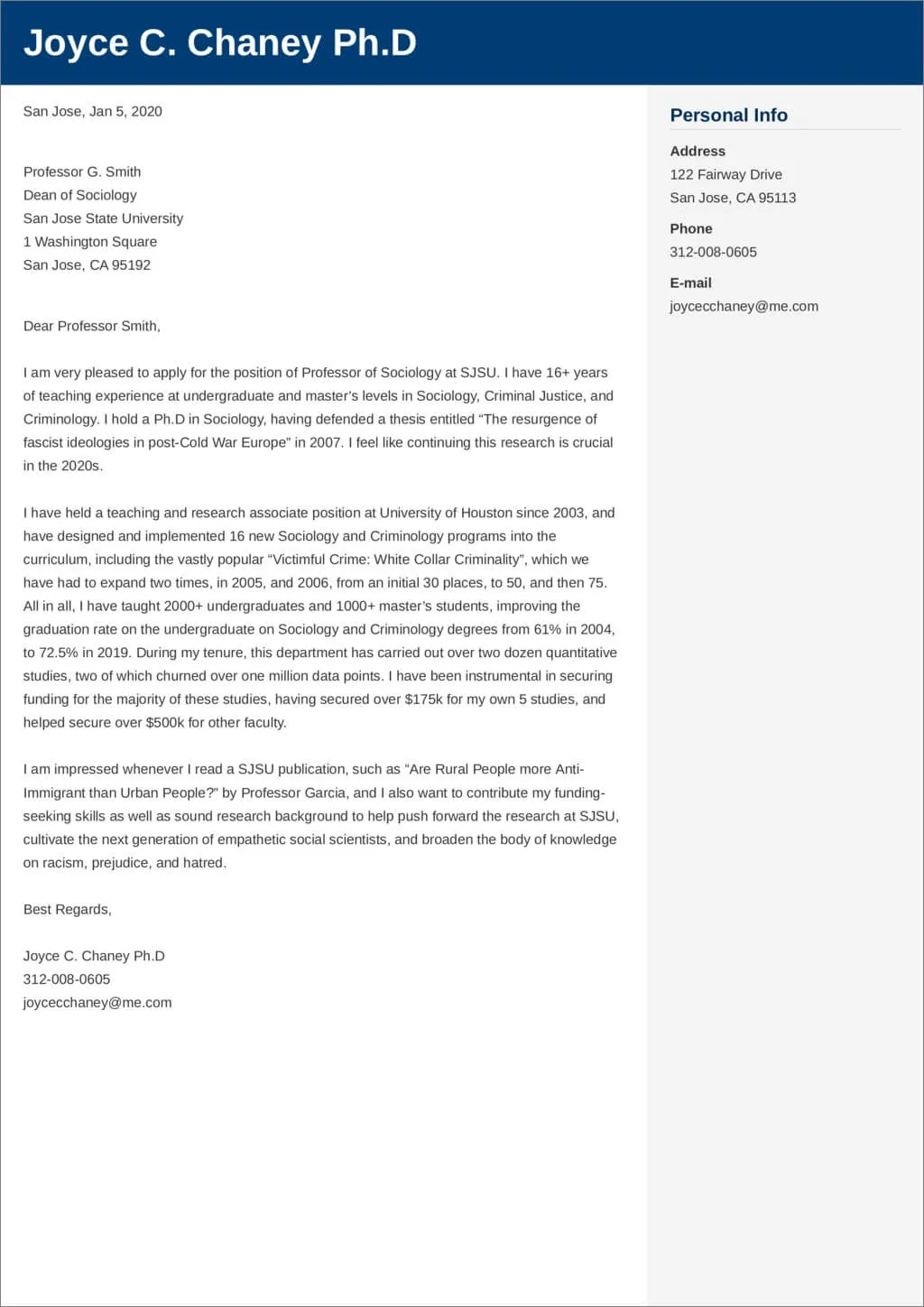
Your opening paragraph is your chance to make a strong first impression. Start with a compelling statement that immediately captures the reader’s attention. Clearly state the position you’re applying for and where you saw the advertisement. Briefly mention your key qualifications and express your enthusiasm for the role and the institution. This is your opportunity to convey your understanding of the department’s needs and your excitement about contributing to its mission. The opening should be concise yet impactful, highlighting your relevant experience and demonstrating your genuine interest in the position. Avoid generic phrases and make it clear why you are a great fit from the outset.
Highlighting Research Experience
Detail your research experience, including your areas of specialization, significant publications, and ongoing projects. Provide specific examples of your research accomplishments and their impact, such as grant awards, publications in top-tier journals, and presentations at conferences. Explain how your research aligns with the department’s research interests and how you plan to contribute to the institution’s research goals. If applicable, describe any collaborations or interdisciplinary work you have been involved in. Quantify your achievements whenever possible, such as the number of publications, citations, or grants awarded. This section should demonstrate your research expertise and your potential to make a significant contribution to the field and the department’s scholarly output. (Image: highlighting-research.webp)
Showcasing Teaching Abilities
Incorporate your teaching philosophy and experience, including the courses you have taught and the teaching methods you employ. Describe your approach to student engagement, assessment, and curriculum development. Provide evidence of your teaching effectiveness, such as student evaluations, teaching awards, or innovative teaching strategies. Tailor your discussion to the specific teaching requirements of the position, demonstrating how your skills align with the department’s pedagogical approach. If you have experience with online or hybrid teaching, highlight it. Your goal is to convince the search committee that you are an effective educator who can inspire and engage students. Share concrete examples of how you have fostered a positive learning environment and student success. (Image: showcasing-teaching.webp)
Addressing the Job Requirements
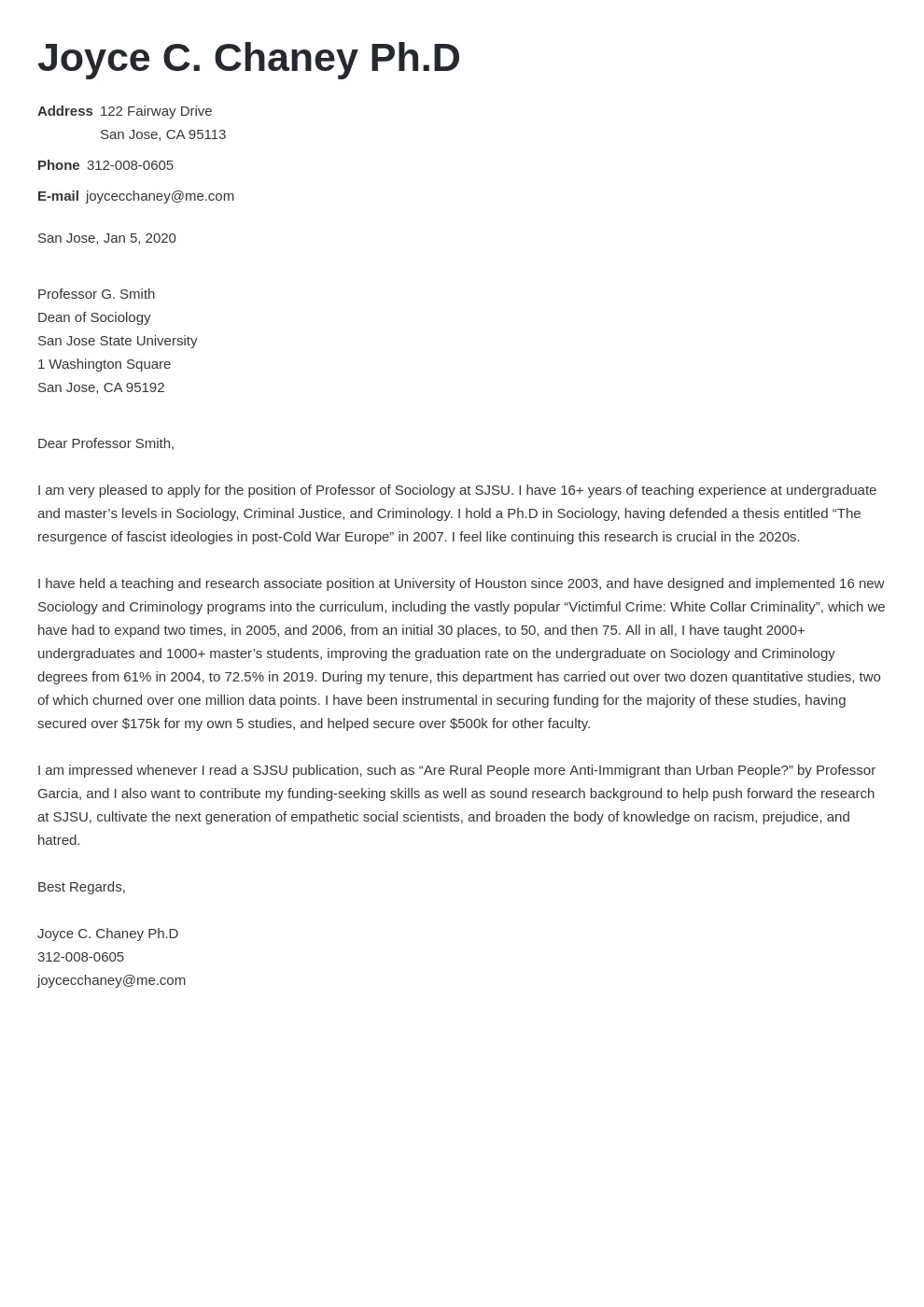
Carefully review the job description and explicitly address each of the required qualifications and responsibilities. Use the job description as a guide to structure your cover letter, ensuring you directly address how your skills and experiences meet their needs. Provide specific examples that illustrate your ability to fulfill each requirement. Be clear and concise, providing concrete evidence of your abilities. When addressing requirements, align your skills with the language used in the job posting to showcase your understanding of the role. If there are any gaps in your experience, address them proactively, explaining how you plan to compensate for them. This is also your opportunity to express your interest in the university’s broader initiatives, such as community engagement.
Closing and Call to Action
End your cover letter with a strong closing paragraph that summarizes your key qualifications and reiterates your interest in the position. Reiterate why you are a good fit for the role and the institution. Express your enthusiasm for the opportunity and your eagerness to contribute to the department’s goals. Include a clear call to action, such as offering to provide additional materials or stating your availability for an interview. Thank the search committee for their time and consideration. Ensure your closing is professional and leaves a positive and lasting impression. Sign off with a professional closing, such as “Sincerely” or “Best regards,” followed by your typed name.
Formatting and Presentation Tips
Font and Style Recommendations
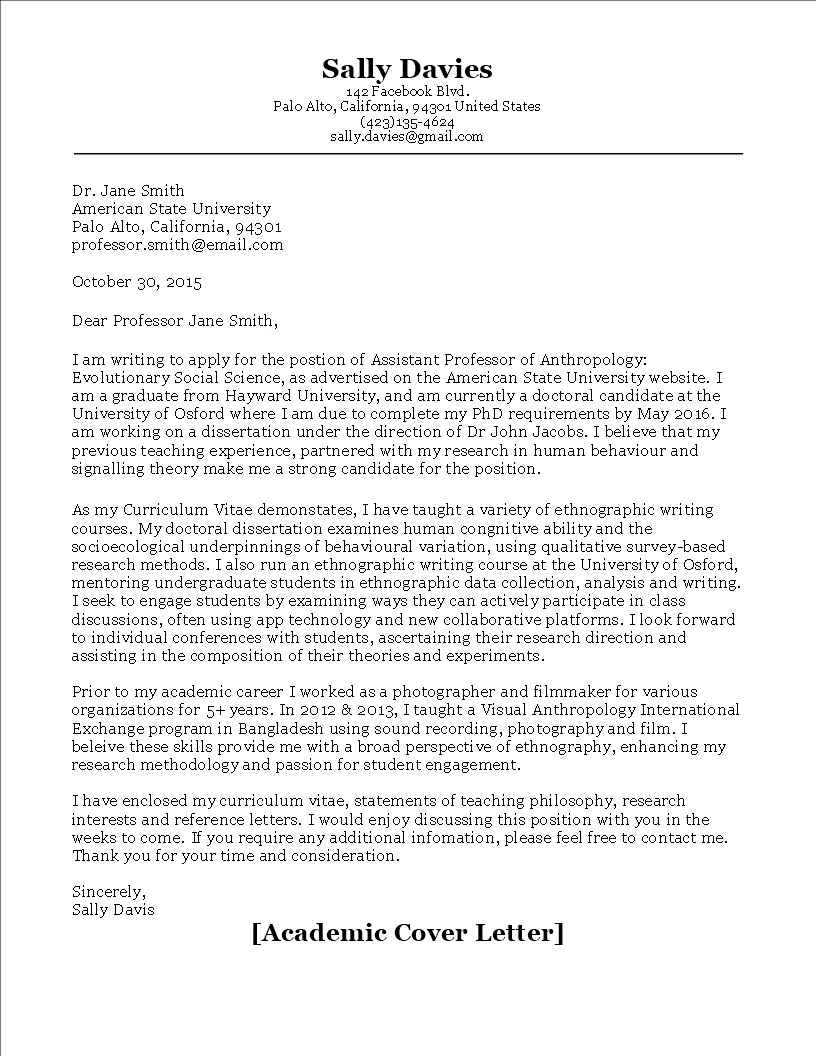
Choose a professional and easy-to-read font, such as Times New Roman, Arial, or Calibri, with a font size between 11 and 12 points. Use standard margins (1 inch on all sides) and ensure consistent formatting throughout the document. Use clear and concise language, avoiding jargon and overly complex sentences. Break up large blocks of text with headings and subheadings to improve readability. Maintain a professional tone throughout, and proofread the document carefully for any errors in grammar, spelling, or punctuation. Ensure your letter is visually appealing and easy to navigate. Strive for a balance of formality and approachability to make a positive impression. (Image: cover-letter-formatting.webp)
Proofreading and Editing
Proofreading and editing are critical steps in ensuring your cover letter is polished and error-free. Carefully review your letter for any grammatical errors, spelling mistakes, or punctuation issues. Read the letter aloud to check for clarity and flow. Seek feedback from trusted colleagues, mentors, or career services professionals. They can provide an outside perspective and help you identify areas for improvement. Consider having multiple people review your cover letter before submitting it. A well-proofread cover letter demonstrates your attention to detail and professionalism. It showcases your commitment to producing high-quality work. Make sure to check all the dates, names, and titles in your application. Mistakes in this area can be detrimental to your application.
Common Mistakes to Avoid
Generic Language and Clichés
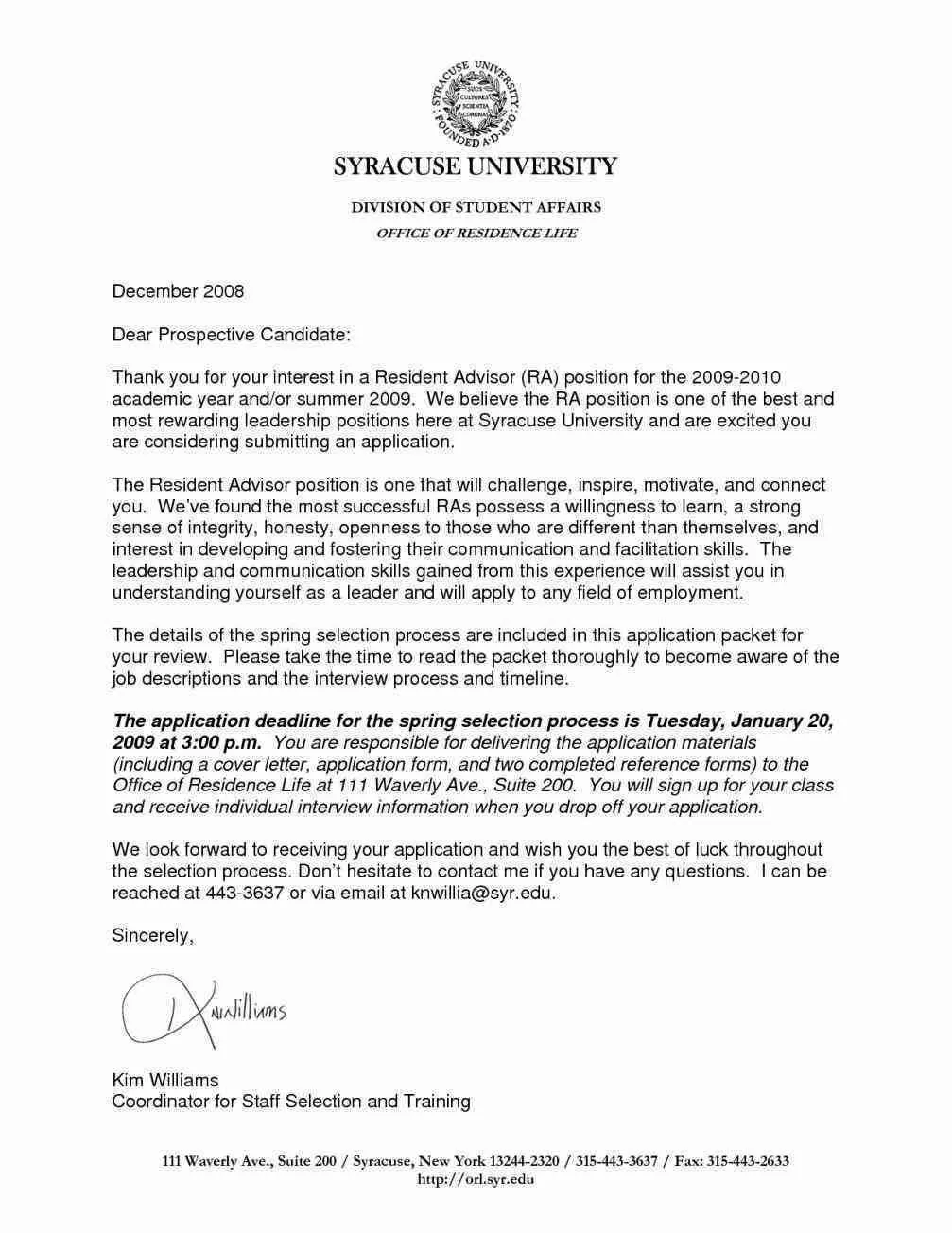
Avoid using generic language and clichés that can make your cover letter sound unoriginal and impersonal. Phrases like “I am a team player” or “I am a highly motivated individual” are often overused and lack impact. Instead, use specific examples and provide evidence to support your claims. Avoid overly flowery language and aim for a clear, concise writing style. Replace vague statements with concrete examples of your achievements and skills. Make sure your writing style is appropriate for the academic context. Using too many clichés can indicate a lack of attention to detail. Write in your own voice to showcase authenticity and your unique perspectives. (Image: avoiding-mistakes-cover-letter.webp)
Focusing on Yourself Too Much
While it’s important to highlight your accomplishments, avoid making your cover letter overly self-centered. The focus should be on how you can contribute to the department and institution, not just on your individual achievements. Balance your discussion of your skills and experiences with a clear explanation of how you align with the job requirements and the institution’s goals. Demonstrate your understanding of the department’s needs and the value you bring to the team. Frame your achievements in terms of how they benefit the institution. By focusing on how your skills can contribute to the department’s needs, you are more likely to grab their attention.
Ignoring the Specifics of the Job
One of the most common mistakes is failing to tailor your cover letter to the specific job requirements and the institution’s values. Generic cover letters that lack specific references to the job description and the department’s needs are unlikely to impress the search committee. Read the job description carefully and address each of the required qualifications and responsibilities. Research the institution and the department to understand their priorities and goals. Demonstrate how your skills, experiences, and research interests align with their specific needs. By showing that you have taken the time to understand the position and the institution, you can make a much stronger impression and increase your chances of success.
Resources and Further Assistance
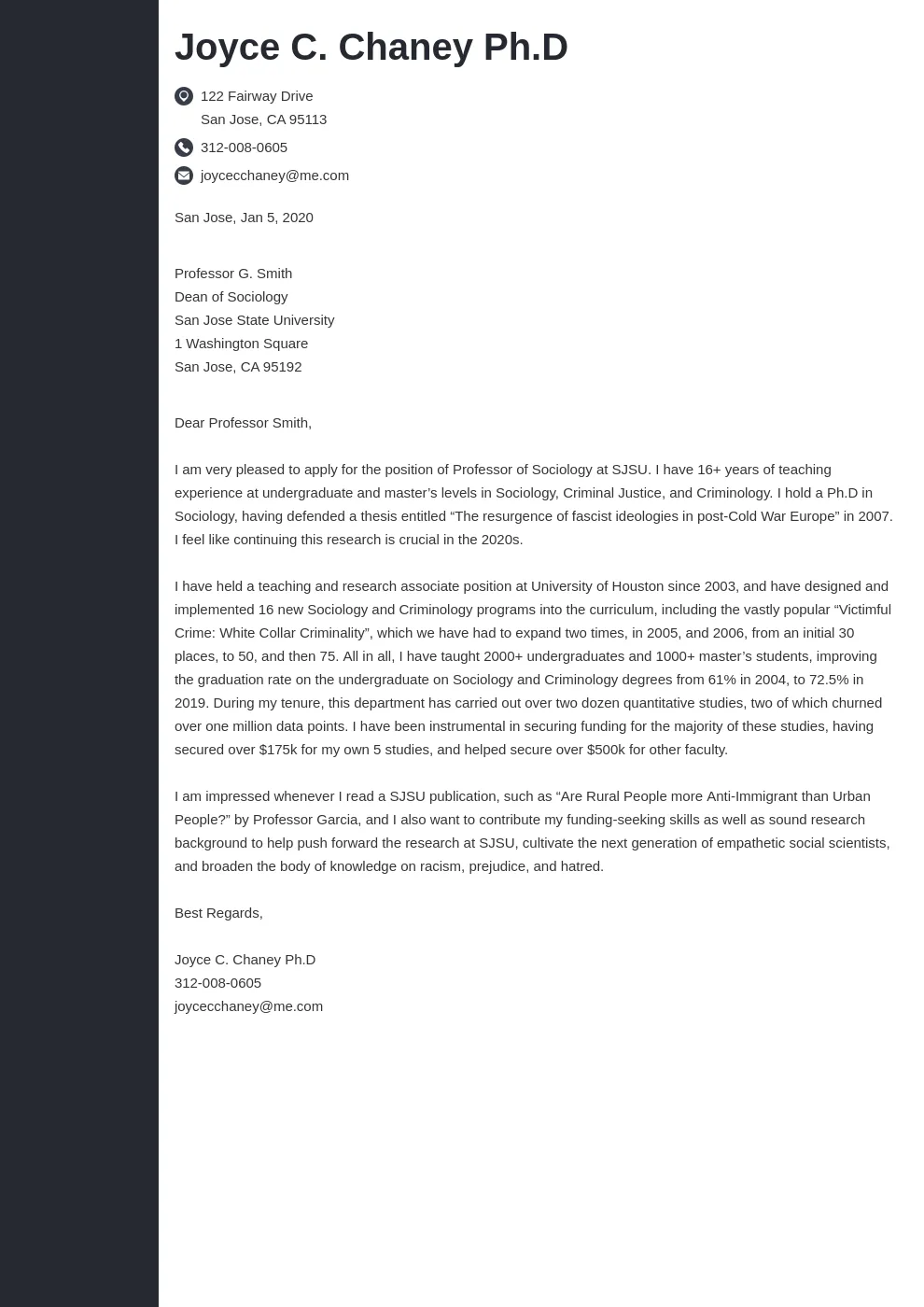
To enhance your cover letter, explore additional resources and seek professional guidance. Consult your university’s career services office for feedback on your cover letter and resume. Review sample cover letters for academic jobs to get ideas and inspiration. Seek advice from faculty mentors or experienced colleagues. They can offer valuable insights and suggestions. Consider attending workshops or seminars on academic job applications. Take advantage of any available resources to refine your cover letter and strengthen your application. By investing time in preparation and seeking guidance, you can significantly increase your chances of creating a compelling cover letter that showcases your qualifications and helps you land the academic job you want.
